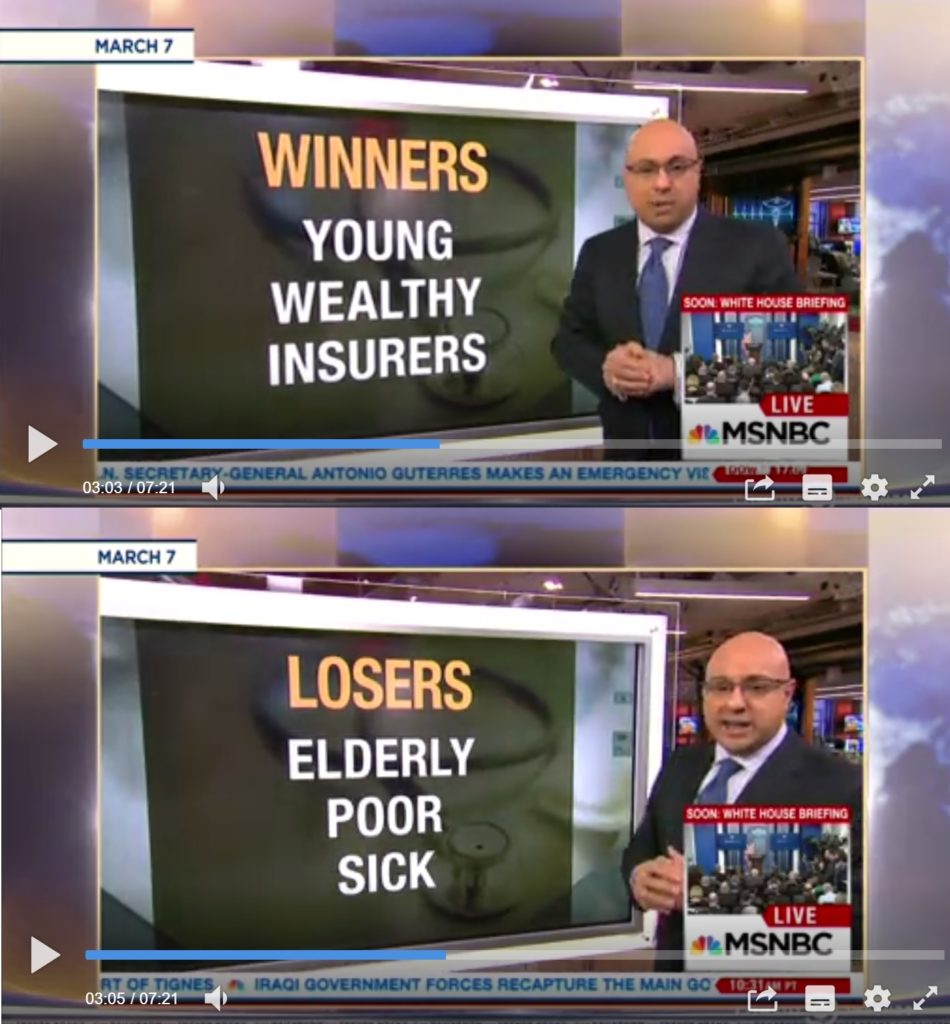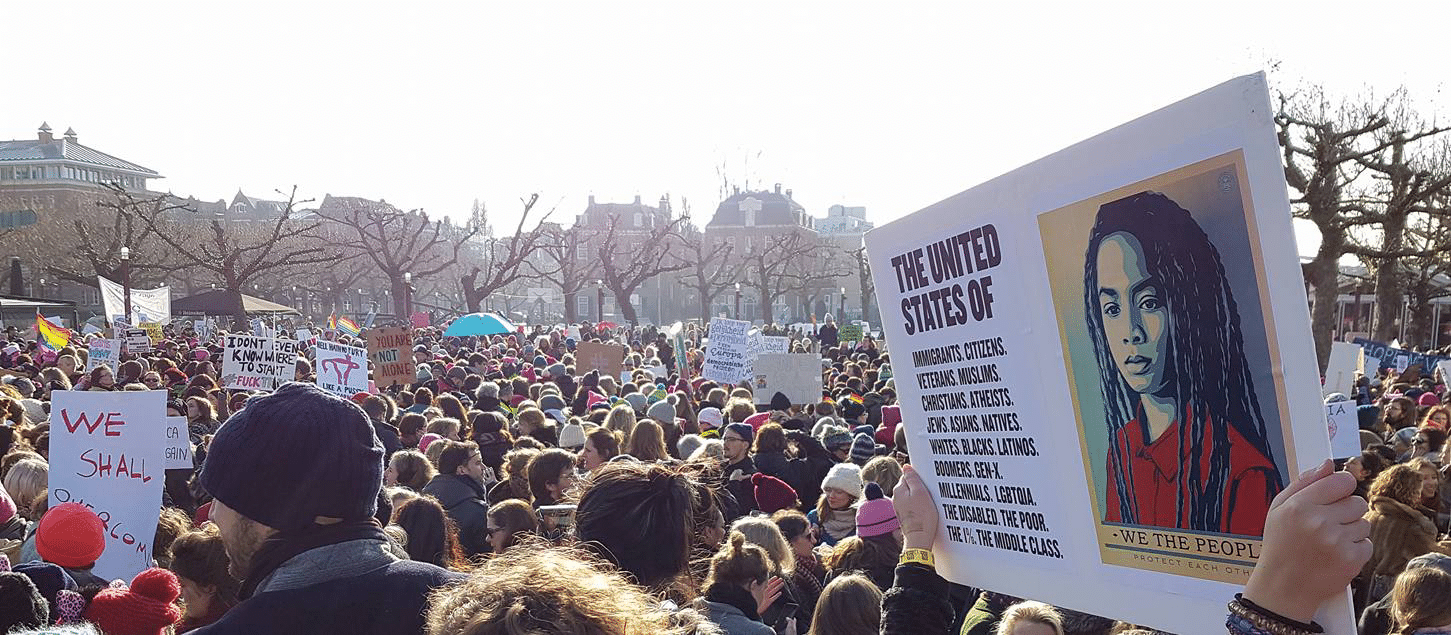A good look at the Dutch health care advantages
What do we value intensely but really don’t think about until you’re about to lose it? A healthy life! Okay, well maybe not everyone thinks this as their first response but since I’m a healthcare professional, it’s the first thing that I think of. I’ve recently come to re-evaluate the state of health insurance here in The Netherlands compared to that of my home country, the United States, because of recent and escalating criticisms in the US about the latest proposed iteration of healthcare reform — not just the usual comedians, but well-informed health policy experts, numerous medical professional organizations, but notably also from the former top US health administrator and even from 44 himself! Scarily enough, the bill could be up for a vote as soon as this week. The Dutch and every other developed nation must be wondering what the heck is going on with American health care and why we can’t come to terms with the reality that everyone should have some ability to access basic health care.
Obamacare and Trumpcare
Frankly, I think some of the debates being had in the US are old news compared to what’s in practice in The Netherlands. And it seems like while the last round of health care reform (the Affordable Care Act) made tangible progress implementing some features of what is already in place in other countries’ health systems, the current proposal (the Better Care Reconciliation Act or BCRA, a.k.a. American Health Care Act, a.k.a. Trumpcare — you can read the full bill here as well as its latest revisions) seems to represent an un-learning of what it means to be a progressive and free nation. The Affordable Care Act has shortcomings too, but it certainly seems to have been more progressive in comparison to the arguably more regressive approach under way; there is an unfortunate lack of evidence-based policy-making going on, with a heavy hand motivated by individualistic and capitalist mindsets so pervasive in American culture. This isn’t in and of itself a problem, but when these mindsets increase human suffering and preventable illness or death, and decrease the well-being of the general population, then a government seems to be abandoning its duties to its people. And so perhaps, current US policymakers could learn a thing (well, many) from the mindset in The Netherlands and embrace the necessity of taking care of its people — ALL OF THEM.
Now, I’ll concede that there is no perfect health care system anywhere in the world, although there are some admirable features of many, which are founded on the easy-to-say-but-hard-to-do philosophy that access to health care is a human right, rather than a privilege. Typically, such countries also have a bit more of a social-oriented mindset than the capitalist view that pervades American thinking and problem-solving. After all, the health of our communities and neighbors define the immediate environment in which we and our families live and work, so shouldn’t it be in everyone’s interest for people to be healthy and happy?
So let’s see what American health care could learn from the Dutch.
1. Mandatory health insurance
As with any insurance market, there needs to be a shared risk pool that individual purchasers are buying into when they pay for an insurance plan, whether it’s auto insurance, health insurance (detailed Dutch health insurance info here, thanks to a fellow DutchReviewer), personal liability insurance (this one being a unique feature of Dutch insurance markets), pet insurance, travel insurance, etc. The whole point is that you pay into the pool a bit when you are well, so that you can receive contracted services covered by your insurance if something catastrophic or unexpected happens. And, when that time comes, you are protected (insured) against the potentially high expenses of such care. Strangely, among the latest revisions announced yesterday, the bill actually might go from an individual insurance mandate to mandatory 6-month non-insurance as a penalty for people who go more than 63 days without insurance in the previous year.
In the Netherlands, the Dutch government says this about their own version of an individual mandate for its populations’ health: “The health insurance system in the Netherlands is based on the principle of social solidarity. Together, we all pay the overall cost of health care. Everyone contributes, for example, to the cost of maternity care and geriatric care.” To me, this means you pay into the system to derive its benefits when you’ll need it — when you get sick, when you get pregnant, when you get old, and so on. Now, you might be a young healthy person asking, “Why should I pay for health insurance? I never see the doctor, I’m not planning on getting pregnant, and all I’m doing is subsidizing the care of the sicker, pregnant, or older people.” Well, I hate to bear bad news, but no one lives in perfect health forever, which brings me to the next point…
2. Basic health care services
Preventive health services, including cancer screenings for example, are considered basic services covered by health insurance in both The Netherlands and the US; similarly, emergency care, hospital stays, medically indicated surgeries, medication prescriptions, and lab tests are also is covered. Interestingly, the Affordable Care Act covers routine vaccines and birth control as basic services, and these are covered only with supplemental insurance in The Netherlands. Both countries only offer dental and vision coverage for adults via supplementary insurance. But I still think the Dutch win out, as fertility treatment, disability, elder care, and some therapy services are covered also in the basic healthcare package; fertility treatment is definitely expensive and uncovered in the US (USD$1182 to $61377, depending on services and outcomes), and the other covered elements depend on a range of factors which would have had to be foretold when an individual purchased the insurance package to begin with. (As you can imagine, the freedom of the US marketplace also leads to astounding complexity in health care.) To top this all off, the pricing is roughly the same for the basic package in the US and in The Netherlands (about 100€/month), even though what’s included differs.
The Dutch have of course been doing this also for longer than Americans, since the Zorgverzekeringswet of early 2006. Sadly, if the BCRA passes in the US Senate, this would sunset all of the basic services listed as minimum coverage by December 2019. On the other hand, basic services will even be expanded in The Netherlands come January 2018. I think regressive is starting to seem like the more appropriate descriptor here.
3. Pre-existing conditions
If you know you need health services because, for example, you have a chronic condition like diabetes, asthma, inflammatory bowel disease, or any others, which require regular check-ups and care, then you can still access affordable health care without being penalized for having a pre-existing condition. This is true in the US, for now, and in The Netherlands. Of course, if BCRA passes, then that’ll be a tragic and backwards story for the US. Dutch health insurance is regulated to disallow such behavior in the insurance market, and explicitly states that “Everyone has a right to essential medical care, even if their condition is caused by an unhealthy or reckless lifestyle.” Meaning? Human rights are not optional.
4. Maternity care & reproductive care
See (2) above about basic services, where for now, the US and The Netherlands are fairly alike even if not identical here. How can we not value the health of women, mothers, and children? I don’t have children myself, but as a woman and as a healthcare professional who has seen women in difficult health and perinatal situations, there are no excuses for marginalizing such a large part of our population. Even as is, in the absence of the BCRA, maternity health is not good — millennial women face a higher maternal mortality rate of 19.2 per 100,000 compared to 7.5 for their predecessor baby boomers. Seriously? For comparison, for Dutch moms, that number has dropped from 12 per 100,000 to 7, between 1990 and 2015. Plus, the costs in the US for low-risk childbirth care vary widely between USD$1189 to $11986 (median: $4215).
I believe also that the American view on pregnancy, maternity care and childbirth also follow a very different paradigm than in The Netherlands. The Dutch think of pregnancy and childbirth as much more holistic and home-oriented (or at least non-hospital-oriented) overall, and fundamentally doesn’t treat pregnant women as disabled like Americans do. Maternity care is a basic service in The Netherlands; maybe this is one of many reasons contributing to why Dutch moms are the happiest. This is not to say that there is only one right way to be pregnant and birth a child, but it’s admirable that there are conceivably more covered options and systemic support for women’s health when it comes to perinatal care in The Netherlands.
Finally, it’s not possible to mention women’s health without also mentioning Planned Parenthood in America — it provides care for nearly 2.5 million people in every one of the 50 states, plus D.C. That’s the equivalent of the entire populations of Amsterdam, Rotterdam, and The Hague combined! This includes the basic health services already noted, plus so much more.
5. Where’s the social good?
I cannot fathom how it would be helpful to any individual or the population that the new US healthcare bill would de-insure about 23 million Americans, reduce women’s health coverage, increase insurance costs for older and sicker Americans, and give money “saved” as tax cuts to the wealthy. Certainly, this isn’t all, but this should be more than enough to re-consider embarking on such preventable disaster. To make matter’s worse, such a bill was crafted in secret and by an all-male committee, effectively eliminating the possibility for any stakeholder who would be directly affected by the consequences (for example, women) to be at the table to participate in decision-making. And for a country with a reputation for freedom, liberty, and democracy to behave in such an opaque manner is disappointing in the least.
Dutchness and health care
Okay, so Dutch health care perhaps is far from perfect — I’m sure there are plenty of readers who can, and will, describe their negative experiences and arguments against these points. But as a healthy young person in The Netherlands, I have no problem with paying into the system because I know that there will come a day when I use health services here, and I’ll be relieved to have paid my share to the pot so that I and my neighbors, friends, and colleagues can preserve our valuable health and lives. I am fortunate enough to be able to do that still in the US should I need it, but I’m certainly happier knowing that the Dutch community in which I live can be healthier and happier with ready health care access and services.
A final note: If you’re an American expat and you have concerns about some of these issues or others relating to the US Better Health Reconciliation Act, I encourage you to voice your objections to key US senators in advance of their vote. Here are just a few easy-to-access resources to point you in the right direction:
https://www.istandwithpp.org/call
http://cqrcengage.com/acplac/app/make-a-call?2&engagementId=369453
http://housecallscampaign.org/#senators.
And if you’re for the BCRA, you’re welcome to share your perspectives.








really witty article, but not very readable or informative